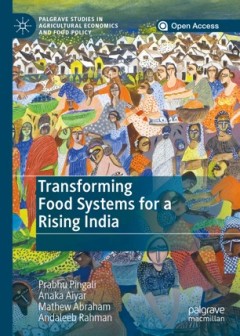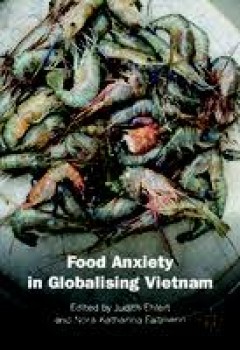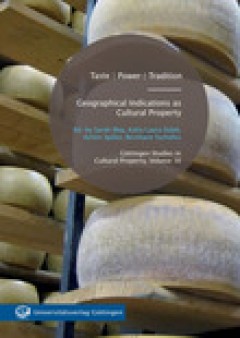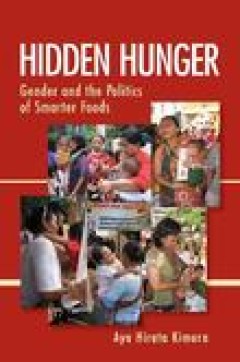Filter by

Transforming food systems for a rising India
This open access book examines India’s economic development, agricultural production, and nutrition through the lens of a “Food Systems Approach (FSA).” Despite economic progress, regional inequality, food insecurity and malnutrition persist. Simultaneously, recent trends in obesity and micro-nutrient deficiency indicate a future public health crisis. This book explores the challenges a…
- Edition
- -
- ISBN/ISSN
- 9783030144098
- Collation
- xxiv, 368p. : ill.
- Series Title
- -
- Call Number
- 363.85610954 TRA t

Food anxiety in globalising Vietnam
This open access book approaches the anxieties inherent in food consumption and production in Vietnam. The country’s rapid and recent economic integration into global agro-food systems and consumer markets spurred a new quality of food safety concerns, health issues and distrust in food distribution networks that have become increasingly obscured. This edited volume further puts the eating bo…
- Edition
- -
- ISBN/ISSN
- 9789811307430
- Collation
- xix, 320p. : ill.
- Series Title
- -
- Call Number
- 307.76 FOO f

Taste, power, tradition: geographical indications as cultural property
The idea of origin in terms of space and culture as a special indicator of quality is one of the most influential strands in contemporary food. It impacts on politics, economics and everyday life – and it connects these fields with complex relations of power and culture. With geographical indications, the EU offers an instrument which allows for the declaration of specialties, qualified by…
- Edition
- -
- ISBN/ISSN
- 9783863952082
- Collation
- 132 page : ill.; 24 cm.
- Series Title
- Gottinger Studien zu Cultural Property ; 10
- Call Number
- 641 TAS t

Hidden hunger: gender and the politics of smarter foods
For decades, NGOs targeting world hunger focused on ensuring that adequate quantities of food were being sent to those in need. In the 1990s, the international food policy community turned its focus to the “hidden hunger” of micronutrient deficiencies, a problem that resulted in two scientific solutions: fortification, the addition of nutrients to processed foods, and biofortification, the …
- Edition
- -
- ISBN/ISSN
- 9780801467684
- Collation
- xiv, 226p.: ill.
- Series Title
- -
- Call Number
- 362.19639009598 KIM h

Culinary linguistics : the chef's special
Language and food are universal to humankind. Language accomplishes more than a pure exchange of information, and food caters for more than mere subsistence. Both represent crucial sites for socialization, identity construction, and the everyday fabrication and perception of the world as a meaningful, orderly place. This volume contains an introduction to the study of food and an extensive over…
- Edition
- -
- ISBN/ISSN
- 9789027202932
- Collation
- xvi, 347p. : ill.
- Series Title
- -
- Call Number
- 420.147 CUL c
 Computer Science, Information & General Works
Computer Science, Information & General Works  Philosophy & Psychology
Philosophy & Psychology  Religion
Religion  Social Sciences
Social Sciences  Language
Language  Pure Science
Pure Science  Applied Sciences
Applied Sciences  Art & Recreation
Art & Recreation  Literature
Literature  History & Geography
History & Geography